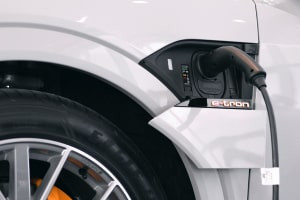For centuries, humankind has relied on fossil fuel to power their machines, from tools to vehicles. The internal combustion engine, for example, revolutionised the automotive industry. But now, fossil fuel deposits are depleting, the price of petrol and diesel is rising and the excess of vehicles in big cities is contributing to pollution. For this reason, big manufacturing countries, such as China and the United States, are pushing automakers to produce more electric vehicles. As a result, there is a need for engineers with a background in electric vehicle technology. This course will help you understand how to build the power-core of electric vehicles: the battery pack. This knowledge will be useful not only in designing batteries for electric vehicles but any other type of electric-powered machines.
The first thing you will learn in this course is how to measure essential battery parameters. You will also understand the role of charge and discharge rates. Next, you will study the chemical composition of batteries. Special attention will be given to the lithium-ion battery, the battery of choice for electric vehicles, and why this battery's chemical properties separate it from other batteries. You will then learn about battery cells and how there are three different types of cells that form what we know as a ‘battery pack’ when assembled. You will understand how to compute the amount of energy, known as ‘battery capacity’, stored in an assembled battery pack, estimate the amount of charge and discharge cycles that a battery pack has left and determine battery health.
Finally, you will learn how to assemble a safe and reliable battery pack, following an excellent mechanical, thermal and electrical design. When you study a battery pack’s mechanical design, you will review stress-strain theory to understand the forces that act on a battery pack, such as tension force. Selecting materials based on their properties to build a battery pack container using a material index is critical. When you study the thermal design of a battery pack, you will learn how to design a good thermal management system, calculate the amount of energy a battery loses due to heat and calculate different materials' thermal resistance. If your interests are in automotive technology, mechanical or electrical engineering, this course is for you. Why wait? Start this ‘Design of Electric Vehicle Batteries’ course today and equip yourself with the knowledge needed to design and build electric vehicles batteries.
What You Will Learn In This Free Course
View All Learning Outcomes View Less All Alison courses are free to enrol, study, and complete. To successfully complete this Certificate course and become an Alison Graduate, you need to achieve 80% or higher in each course assessment.
Once you have completed this Certificate course, you have the option to acquire an official Certificate, which is a great way to share your achievement with the world.
Your Alison certificate is:
- Ideal for sharing with potential employers.
- Great for your CV, professional social media profiles, and job applications.
- An indication of your commitment to continuously learn, upskill, and achieve high results.
- An incentive for you to continue empowering yourself through lifelong learning.
Alison offers 2 types of Certificate for completed Certificate courses:
- Digital Certificate: a downloadable Certificate in PDF format immediately available to you when you complete your purchase.
- Physical Certificate: a physical version of your officially branded and security-marked Certificate
All Certificate are available to purchase through the Alison Shop. For more information on purchasing Alison Certificate, please visit our FAQs. If you decide not to purchase your Alison Certificate, you can still demonstrate your achievement by sharing your Learner Record or Learner Achievement Verification, both of which are accessible from your Account Settings.











 Avg. Hours
Avg. Hours  Contains Video
Contains Video  CPD Accredited
CPD Accredited 
 Total XP:
Total XP: 
 Knowledge & Skills You Will Learn
Knowledge & Skills You Will Learn 







